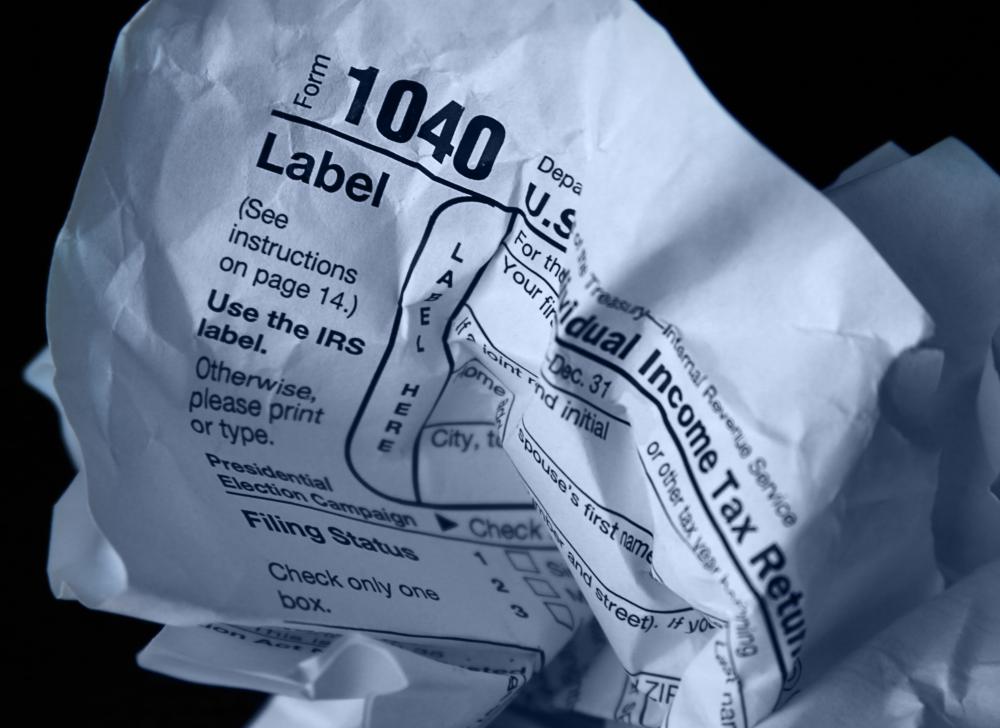At SmartCapitalMind, we're committed to delivering accurate, trustworthy information. Our expert-authored content is rigorously fact-checked and sourced from credible authorities. Discover how we uphold the highest standards in providing you with reliable knowledge.
What is Estate Accounting?
Estate accounting is accounting which pertains to the settling of an estate. When someone dies, his or her property is handled by someone appointed as an executor and the executor must keep accurate accounting records as the estate is wrapped up and distributed in keeping with the wishes expressed in the will. In addition, there are some special accounting issues which pertain to estates, such as the need to file final tax returns on behalf of the deceased; if the only things which are certain are death and taxes, it's important to note that tax liabilities pursue people even after death.
People are often advised to make plans for their estates before they die, and estate accounting can come into play when people are engaged in estate planning. Thinking ahead, even if one has limited assets to distribute, can ensure that an estate can be quickly moved through probate and settled. In addition, estate planning can include making plans for the event of incapacitation, such as establishing a trust to pay for care and appointing someone to make decisions.

When someone dies and the executor is given control of the estate, it is necessary to generate a complete and accurate description of everything the estate contains. Sometimes a will enumerates an estate in detail, which makes this aspect of estate accounting much easier, and in other cases it may be necessary to make a survey of the estate for the purpose of gathering this information. This is an important aspect of estate accounting because it gives the executor a complete picture of everything in the estate.

This documentation is used as the estate is moved through probate. The executor must account for any expenses occurred while handling the estate and accounting for estates includes a duty to avoid incurring unreasonable expenses. Once the estate has been completely settled, the executor can generate a report which details what he or she did, how the estate was distributed, and which expenses were incurred during the processing of the estate.

In addition, estate accounting includes preparing tax returns for the deceased and advising beneficiaries about their own taxes. Inheriting can come with tax liabilities which people need to be prepared for so that they can file their taxes accurately. While tax agencies do allow people to file amended returns if they make mistakes, it is preferable to get taxes right on the first try.
AS FEATURED ON:
AS FEATURED ON:













Discussion Comments
@allenJo - Yes, it can be an ugly process and unfortunately there are many hands trying to get their hands in the cookie jar to collect estate proceeds as they are being doled out. However, I think the procedures should be followed so that the IRS doesn’t wind up paying the executor an unwelcome visit.
First and foremost the executor will have to set up an estate bank account, and all proceeds from probate will go through this account.
If you are the executor, this should be the first order of business. This account will be kept separate from the accounts of any other surviving relatives, so that there is no funny business going on.
Then everyone who has legal claim to the estate will be notified, including any creditors as well. It takes time, and if, like me, you’ve been through it before, you see sides of your relatives you’ve never seen before.
I had no idea an accounting service needed to be consulted when considering how you would dispose of your assets upon your death. I thought you just needed to consult a lawyer to draw up a will and that would be it.
What I particularly dislike is the proposition that your beneficiaries must fork up tax payments as the estate goes through probate.
Post your comments